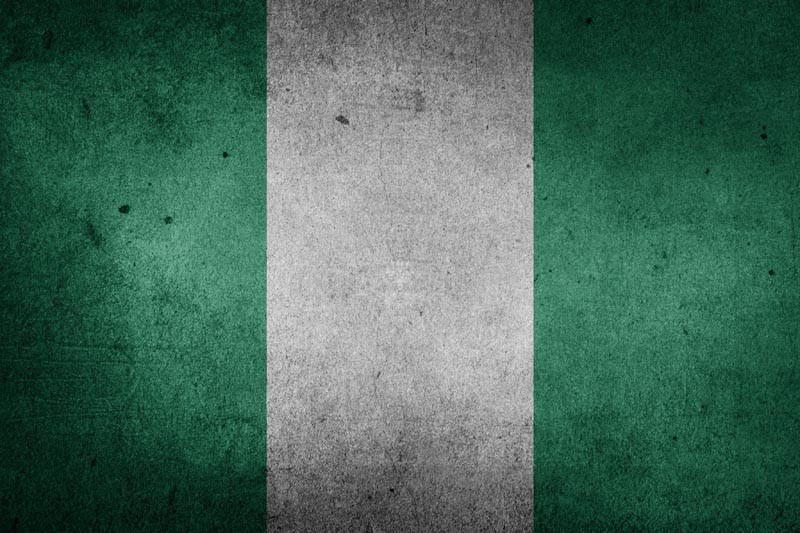African Union Responds to Trump’s Claims Regarding Nigeria’s Religious Freedom

The African Union finally addresses the killing of Christians in Nigeria and released its statement in response to President Donald Trump’s threats to Nigeria if circumstances do not change.
On Oct. 31, Trump officially designated Nigeria as a Country of Particular Concern (CPC) and called attention to the targeting of Christians there, threatening military intervention if Nigeria didn’t take action to stop the killings.
Now the African Union is pushing back, claiming that holding Nigeria responsible for the attacks is unwarranted. The African Union Commission, the administrative and executive arm of the African Union, stated that Nigeria has the sovereign right to manage its internal affairs, including matters of security, religious freedom, and human rights.
The commission stated in a recent press release that it has concerns about “… recent statements by the United States of America alleging that the Government of Nigeria is complicit in the targeted killing of Christians and threatening military action,” stating that “Any external engagement must respect Nigeria’s sovereignty, territorial integrity and unity …”
The African Union represents 55 countries and said it rejects any narrative that “weaponizes religion or oversimplifies security challenges.” President Trump threatened to cut aid to the country and has the support of the U.S. defense secretary to attack jihadist terror groups that have attacked Christians.
The African Union does not support this approach, stating, “Conflating all violence with a single religious-target narrative may hinder effective solutions and destabilize communities …”
In response to President Trump’s threats, President Tinubu of Nigeria said that Nigeria is facing major security issues and stated that the Nigerian government will work to eliminate terrorist groups within the country. In a statement made on Nov. 7, he said that Nigeria has been plagued by terrorism for the last 20 years and pledged that he will not stop until the problem is eliminated.
“We will decisively defeat terrorism and claim victory in this battle. Security is non-negotiable, and we will never compromise on this principle. With unwavering courage and a steadfast commitment to the rule of law, we will prevail,” he said. “To the brave men and women of our armed forces and intelligence community, united by purpose regardless of tribe or religion, who serve fearlessly, fight side by side, and sometimes pay the ultimate price, we express our deepest gratitude. Your commitment is our strength in the fight against terror.”
Nigerian Foreign Minister Yusuf Tuggar contributed to the conversation, stating that the government can’t support religious persecution, as it does not align with Nigeria’s values.
“It’s impossible for there to be religious persecution that can be supported in any way, shape, or form by the government of Nigeria at any level, whether federal, regional, or local,” Tuggar said. “It’s impossible.”
Minister of Information and National Orientation, Alhaji Mohammed Idris, echoed similar sentiments, saying that the country is facing a terrorism issue, not a Christian persecution one.
Nigeria’s Minister of Aviation and Aerospace Development, Festus Keyamo, wrote a letter to President Trump, again stating that the country is fighting terrorism, not Christian persecution.
“In fact, most of the security chiefs appointed by him are Christians, so it would be unthinkable to imagine them being complicit in the killing of fellow Christians in Nigeria … President Bola Ahmed Tinubu of Nigeria, though a Muslim, is a known ‘moderate’ whose wife is a pastor of one of the biggest Pentecostal churches in Nigeria, and most of his children are practicing Christians.”
Keyamo further claimed that there is no religious persecution in the country, but asked for help combating terror-related issues.
“We ask for collaboration,” he said. “We ask for frank and open dialogue at this time with your government. We ask that you broaden your sources of information at this time so as to get a balanced view of the happenings in Nigeria.”
The African Union echoed these sentiments, calling on the United States to engage with Nigeria through diplomatic dialogue, intelligence sharing, and partnership, while respecting Nigeria’s sovereignty.
While there is disagreement over what constitutes Christian persecution and what is occurring, there is agreement that there is a problem that needs to be addressed to stop violence in Nigeria.
To read more news stories, visit the ICC Newsroom. For interviews, please email [email protected]. To support ICC’s work around the world, please give to our Where Most Needed Fund.
